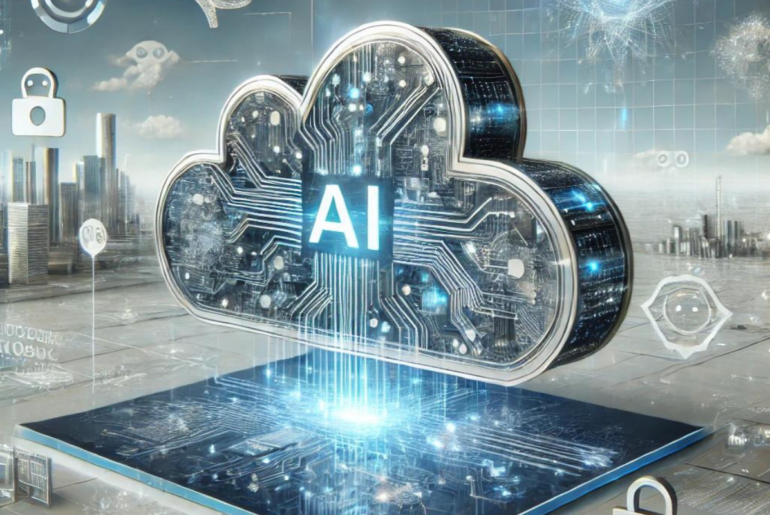This year, the convergence of cloud computing and generative AI (GenAI) is creating unprecedented opportunities for innovation. For growing tech vendors and startups, leveraging these technologies is not just a competitive edge—it’s a necessity. This blog explores how GenAI is transforming cloud infrastructure, offering practical insights and strategies to help your business thrive.
The Convergence of Cloud and GenAI
Cloud computing provides scalable, on-demand resources that allow businesses to be agile and responsive. Generative AI, on the other hand, brings advanced machine learning capabilities that can turn vast amounts of data into actionable insights and automate complex tasks. The intersection of these technologies marks a paradigm shift, enabling smarter, more efficient, and highly adaptive cloud environments.
Key Benefits of Integrating GenAI with Cloud Infrastructure
Predictive Scaling and Resource Allocation
AI models can forecast workloads based on historical data, enabling dynamic resource provisioning. This means your cloud infrastructure can automatically scale up or down based on demand, ensuring optimal performance and cost-efficiency. Predictive scaling helps avoid over-provisioning and under-utilization, common pitfalls in traditional cloud management.
Predictive scaling involves using AI to analyze patterns in data usage and forecast future needs. This proactive approach ensures that resources are available when needed, without wasting money on unused capacity. For example, an e-commerce platform might see spikes in traffic during holidays. AI models can predict these spikes and adjust resources accordingly, ensuring smooth operation during peak times.
Automated Cloud Cost Optimization
Managing cloud costs is a critical challenge for startups and growing tech vendors. GenAI can analyze spending patterns and recommend cost-saving measures. AI-driven tools can help you select the most cost-effective instances, rightsizing your infrastructure, and even automate budget alerts and recommendations. This ensures that you get the most out of your cloud investment without unnecessary expenses.
Cost optimization is not just about reducing expenses but about making smart investments in cloud resources. AI can provide detailed insights into where money is being spent and identify areas where savings can be achieved. For instance, AI might suggest moving non-critical workloads to less expensive storage options or shutting down underutilized instances automatically.
Intelligent Load Balancing and Traffic Management
Efficient load balancing and traffic management are crucial for maintaining high performance and user satisfaction. AI-powered traffic prediction models can anticipate traffic spikes and direct load accordingly, optimizing resource use and minimizing latency. Additionally, smart CDN optimization and adaptive application performance management ensure that your applications run smoothly, even under varying load conditions.
AI can predict traffic patterns and dynamically adjust load balancing to ensure optimal performance. This is particularly important for applications with fluctuating traffic, such as social media platforms or online gaming services. By distributing traffic efficiently, AI helps prevent bottlenecks and ensures a seamless user experience.
Enhancing Cloud Security with GenAI
Security is a paramount concern for any tech business. GenAI enhances cloud security by providing advanced anomaly detection, adaptive security policies, and automated threat response.
Anomaly detection involves using AI to identify unusual patterns in data that could indicate a security breach. By continuously monitoring network traffic and user behavior, AI can detect and respond to threats in real time. Adaptive security policies use AI to adjust security measures based on current threats, ensuring robust protection.
Automated threat response leverages AI to triage incidents, contain threats, and even predict future vulnerabilities. This proactive approach to security helps businesses stay ahead of potential threats and maintain a strong security posture.
AI-Driven Cloud Management
GenAI streamlines cloud management through intelligent monitoring, automated incident response, and performance optimization.
Intelligent monitoring involves using AI to analyze logs and performance metrics, identifying issues before they become critical. This proactive approach minimizes downtime and ensures smooth operation. Automated incident response uses AI to classify and route incidents efficiently, often resolving common issues without human intervention.
Performance optimization is another key area where AI can make a significant impact. By continuously analyzing performance data, AI can identify bottlenecks and recommend optimizations to improve efficiency. This ensures that your cloud infrastructure runs at peak performance, delivering the best possible user experience.
Cloud-Native AI Development
Developing AI models in a cloud-native environment offers significant advantages in terms of scalability and flexibility.
Containerized environments package AI models with all their dependencies, ensuring consistency and portability. This simplifies deployment and scaling, allowing businesses to respond quickly to changing demands. Kubernetes, a popular orchestration tool, automates the deployment, scaling, and management of containerized AI services, providing robust and reliable infrastructure for AI workloads.
Serverless architectures offer another layer of efficiency. Event-driven AI processing allows code to be executed in response to specific events, optimizing resource usage and reducing costs. This pay-per-use model means businesses only pay for the computational power they consume, making it a cost-effective solution for many applications.
MLOps, the practice of combining machine learning with DevOps, is essential for managing the lifecycle of AI models. Automating the deployment, monitoring, and retraining of models ensures they remain accurate and relevant over time. Version control for data, models, and code is crucial in maintaining consistency and reproducibility. Continuous integration and deployment (CI/CD) pipelines enable frequent updates and improvements, keeping AI systems at the cutting edge of performance and reliability.
Future of Cloud AI
Looking ahead, the integration of AI with emerging technologies like quantum computing and autonomous systems will further revolutionize cloud infrastructure. Companies that stay ahead of these trends will be better positioned to leverage new opportunities and maintain a competitive edge.
Quantum computing will enable the development of more sophisticated models and algorithms, accelerating research and innovation. Hybrid quantum-classical cloud architectures will become more prevalent, allowing organizations to harness quantum computing’s power for specific tasks while leveraging classical computing for others.
The next generation of cloud infrastructure will be characterized by autonomous systems powered by AI. These self-organizing and self-optimizing environments will manage resources, detect anomalies, and resolve issues without human intervention, reducing operational complexity and enhancing system reliability.
Conclusion
The convergence of GenAI and cloud computing is revolutionizing how tech vendors and startups manage their infrastructure. By embracing predictive scaling, automated cost optimization, intelligent load balancing, and advanced security measures, businesses can ensure their cloud environments are efficient, secure, and highly adaptive. As AI continues to evolve, integrating these technologies will be crucial for staying competitive and driving innovation in the digital age.
Discover how IDC’s AI Use Case Discovery Tool can elevate your AI strategy—learn more here.




